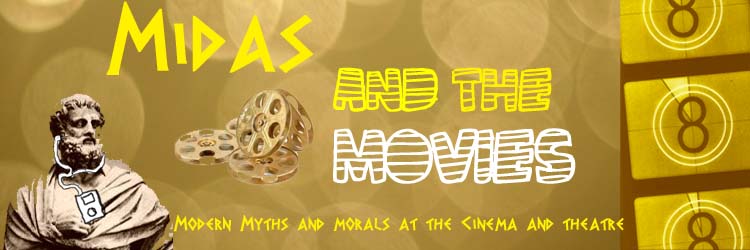With Jupiter One. Paramount Theatre, Seattle.
Listening to one of Regina Spektor's records, one could easily imagine her concert set inside Lewis Carroll's imagination, complete with curious creatures, swirling colors, quirkiness tinged with melancholy. Lacking this lush setting, one could at least hope for a small club full of green-haired music majors to laugh along to her lyrical flourishes, swigging beer with a smirk as on the cover of Spektor's Soviet Kitsch. Then again, it wouldn't be out of place to hear her songs played at your best friend's senior recital, greeted with hushed respect and applause.
There has always been a tension in Regina's music: is she an antifolk renegade, foul-mouthed and ready to bark like a dolphin? Or is she really just a classical musician, with a masterful command of her mezzo-soprano and riffs like Rachmaninoff? Now that she's hit the bigtime, are we any closer to the answer?
Her shows have moved from niche New York clubs to 3000-seat historic theatres. No longer populated with university hipsters, her audiences now also include middle-aged couples, young girls, and high schoolers who fell in love with her songs in the latest episode of Grey's Anatomy. A Regina Spektor show is no longer an underground, literary affair. Heck, your grandma might even be there. Regina's got people to please.
Her opener, Jupiter One, was surprisingly mainstream. It seemed as if they were going to perform a by-the-books pop rock set, and in some ways it was. But they were earnest and energetic, and managed to give their sound a fun edge by working in violin, synths, and a loop machine. Lead singer K Ishibashi impressed with his punky jumps and his violin accompaniment to Regina's set.
At last, Regina walked out, smiling graciously in a white sundress, accompanied by a violinist, a cellist, and a drummer. It was a sit-down affair from the beginning. She played from her new record Far, rarely straying from the recorded arrangements. From the string accompaniments to the whispered "Thank you" at the end of each song, the show started out very much like a recital. The audience bombarded her with applause and raucous calls of "I love you Regina!" and, more oddly, "Donate your eggs to me!" She mostly ignored this bait and moved from song to song with as little banter as possible.
After an initial section of pretty, restrained piano pieces, she ditched the band and headed over to the keyboard to loosen up. Here, she graced the audience with some of her quirkiest pieces, performed with synths, electric guitar, or no accompaniment at all. This is the Regina that I came to see, and I was sad to see that it only lasted for a few songs. A concert highlight was her acapella rendition of "The Eye Color Generalization Song", a jazz piece that had the audience laughing as she winked through song.
How does her live performance vary from her records? The short answer: very little. However, her live voice is more warmer, more agile and confident. Any meowing hesitation on her album was replaced with a pure, bright belt that never missed a note. Her stage presence is always warm and never manic, but she is at home behind her piano. It feels as if she doesn't know what to do with being the center of so much attention.
She withheld all her hooky hits until the encore, when she emerged from the wings beaming and grateful. Here, she proved what brought in the crowds in the first place: that she can write and perform pop perfection. Her sugared voice brought them what they came to hear: Fidelity, Us, Samson, Hotel Song. But, being herself, she ended on a curveball: a rousing, hilarious country song entitled "Love, You're a Whore."
Performance wise, the audience certainly got their money's worth. Regina was in full musical force, showcasing her classical and punky sides. But I come to concerts hoping to get a glimpse of the artist behind my favorite songs, and that was sorely lacking. She came, she smiled, she played, she bowed. The woman who wrote "Apres Moi" and "Chemo Limo" certainly has a lot going on in her head that she's not ready to share with an audience of 3000. That's fine. But I hope that the mainstreaming of Regina Spektor has not tamed the playful, daring artist inside. I'd love to meet her someday.

No comments:
Post a Comment